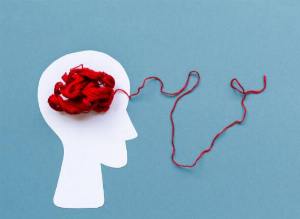Cognitive remediation in schizophrenia: What are the benefits?
Published Jul 17, 2023 • By Polina Kochetkova
Schizophrenia is a complex mental disorder characterized by a range of symptoms, including cognitive impairments. These cognitive deficits can significantly impact individuals' ability to function in various areas of life.
Cognitive remediation has emerged as a promising intervention for improving cognitive functioning in individuals with schizophrenia.
Keep reading to find out!

What research is being done on schizophrenia?
Less than 1% of Americans suffer from schizophrenia, a severe brain condition. Delusions, hallucinations, disorganized speech, difficulty thinking, and a lack of motivation are potential symptoms of schizophrenia. The majority of schizophrenia symptoms improve significantly with treatment, and the risk of relapse can be reduced.
Schizophrenia has no known cure, but as research is advancing, new therapies appear. Additionally, experts are figuring out the disease's origins by researching behavioral issues, examining genetics, and employing cutting-edge imaging to examine the structure and operation of the brain. These strategies provide the possibility of developing fresh, potent treatments.
What is cognitive remediation in schizophrenia?
A therapy strategy called cognitive remediation aims to enhance cognitive performance in people with schizophrenia. Targeting particular cognitive domains, it includes exercises and techniques that are structured.
Cognitive deficiencies that impact attention, working memory, executive processes, and social cognition are linked to schizophrenia. These limitations make it more difficult to engage in social relationships, work, and daily tasks. For schizophrenia patients, addressing cognitive deficiencies is increasingly crucial for enhancing overall results and quality of life.
Exercise and practice, strategy training, metacognitive training, and social cognition training are all common tactics. To improve cognitive capacities, cognitive remediation programs frequently use computer-based exercises, group activities, and personalized training. Regular practice of computer or paper-and-pencil exercises usually target certain skills (such as sustained attention, verbal memory, and working memory) is the typical form of CR.
While some CR programs collaborate with other rehabilitation programs, others do not. People are urged to locate another rehabilitation program that focuses on the aspect of functioning they want to change the most if only a "stand alone" CR program is offered. It can be challenging to locate a CR program in the neighborhood because there aren't many persons qualified to deliver these services. Thankfully, the field is expanding quickly. It is useful to purchase CR software programs for use at home, although it is yet unknown how well home practice will work without professional supervision. Your doctor or a local mental health clinic could help you to get in touch with a CR program.
What are the benefits of cognitive remediation in schizophrenia?
Cognitive Functioning
People with schizophrenia have shown consistent improvements in their cognitive functioning after cognitive rehabilitation. It improves problem-solving, executive functioning, memory, and attention. These enhancements have a beneficial effect on daily activities, such as planning, organizing, and making decisions.
Better functional results for people with schizophrenia come from interventions that improve cognitive functioning. It improves career outcomes by raising employment rates, job security, and general output. Additionally, cognitive rehabilitation increases one's capacity for independent living, community involvement, and everyday life skills.
Psychosocial Functioning
Cognitive therapy for schizophrenia has been demonstrated to improve psychosocial functioning. Better social skills, stronger social ties, and greater community integration result from improved cognitive abilities. It enhances one's capacity for empathy, communication, and social cues understanding, which results in more fulfilling interactions and a higher standard of living.
Treatment Adherence and Engagement
For people with schizophrenia, cognitive remediation programs can increase treatment adherence and engagement. Individuals can better understand therapeutic concepts and take an active part in treatment by developing their cognitive functioning. As a result, the therapeutic connection is strengthened, and treatment satisfaction and motivation are boosted.
Generalization and Maintenance of Gains
Generalization and maintenance of cognitive skills are one of the fundamental advantages of cognitive rehabilitation. People can use their enhanced cognitive capacities in their daily lives by applying the skills they learn during remediation in situations they may encounter in the real world. There is a chance that the advantages will remain because long-term follow-up studies have revealed maintained cognitive improvements even after the treatment was completed.
Final takeaway
For those with schizophrenia, cognitive remediation has considerable advantages since it enhances cognitive performance, functional outcomes, and psychosocial functioning. It improves daily performance, job prospects, and general quality of life. Cognitive remediation programs have the power to change the lives of people with schizophrenia by treating cognitive deficiencies. The long-term prognosis for people with schizophrenia can be improved by incorporating cognitive remediation into complete treatment strategies. To fully utilize cognitive remediation and enhance the lives of individuals who are affected by schizophrenia, it is crucial to continue the study, raise awareness of the issue, and put it into practice.
Give it a "Like" and share your thoughts and questions with the community in the comments below!
Take care!
Sources:
What is Schizophrenia?, American Psychiatric Association
Cognitive Remediation for Schizophrenia, American Psychiatric Association
Cognitive remediation for schizophrenia: An expert working group white paper on core techniques, Science Direct
Cognitive remediation for negative symptoms of schizophrenia: A network meta-analysis, Science Direct
Cognitive Remediation in Schizophrenia: Current Status and Future Perspectives, NIH.org
Comments
You will also like

Fighting Schizophrenia Symptoms: a Long Journey Against Paranoia after Denial and being Admitted
Dec 12, 2018 • 6 comments

 Facebook
Facebook Twitter
Twitter
